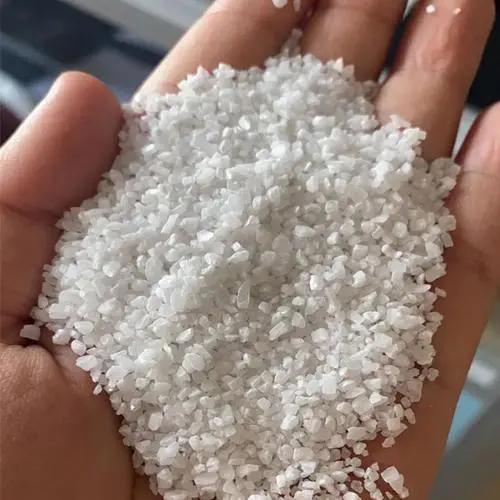
amending clay soil with vermiculite
Amending Clay Soil with Vermiculite
Clay soil is often known for its heavy, dense texture, which can pose significant challenges for gardeners and landscapers. Water drainage issues, root aeration problems, and poor nutrient availability are common characteristics of clay soil. Fortunately, amending clay soil with materials such as vermiculite can significantly improve its structure and fertility, creating a healthier environment for plant growth.
Vermiculite is a natural mineral that undergoes a heating process to expand into lightweight, fluffy particles. Its unique physical properties make it an ideal amendment for clay soil. One of the primary benefits of incorporating vermiculite is its ability to enhance soil aeration. The lightweight nature of vermiculite allows it to create air pockets in the soil, which is crucial for root respiration and overall plant health. In clay soil, which tends to be compacted, adding vermiculite can alleviate soil density and promote better air circulation.
Another notable attribute of vermiculite is its excellent water retention capabilities. Although clay soil can hold moisture, it often does so excessively, leading to poor drainage and root rot issues. Vermiculite can help regulate moisture levels by absorbing water and releasing it slowly to the surrounding soil. This makes it easier for plants to access water while preventing the over-saturation that clay soil is notorious for. The combination of vermiculite's water-holding capacity and clay's ability to retain nutrients creates an optimal environment for root development.
amending clay soil with vermiculite

Moreover, vermiculite is rich in essential minerals such as magnesium, potassium, and calcium. When mixed into clay soil, it contributes to the nutrient-holding capacity of the soil, making nutrients more available to plants. This is particularly beneficial for vegetables, flowers, and other crops that require a steady supply of nutrients for optimal growth. The improved nutrient profile can lead to healthier plants, increased yields, and more vibrant flower displays.
To amend clay soil with vermiculite, gardeners should begin by tilling the soil to break it up and create a workable texture. Then, the vermiculite can be mixed into the soil at a ratio of approximately 25% vermiculite to 75% clay. This ratio can vary depending on the specific needs of the plants you are growing and existing soil conditions. Once mixed, it is essential to allow some time for the soil to settle before planting, as this can help stabilize the new texture.
One significant advantage of vermiculite is its non-toxic and pH-neutral nature, making it an environmentally friendly choice for soil amendment. It carries no harmful chemicals or substances that might leach into the soil or affect plant health.
In conclusion, amending clay soil with vermiculite provides a range of benefits that can transform challenging soil into a more fertile and productive growing medium. By improving aeration, moisture retention, and nutrient availability, vermiculite plays a vital role in enhancing the overall health and productivity of plants. Gardeners looking to improve their clay soil will find that this lightweight mineral is a valuable addition to their gardening toolkit, leading to thriving plants and bountiful harvests.
Share
-
Premium Pigment Supplier Custom Solutions & Bulk OrdersNewsMay.30,2025
-
Top China Slag Fly Ash Manufacturer OEM Factory SolutionsNewsMay.30,2025
-
Natural Lava Rock & Pumice for Landscaping Durable Volcanic SolutionsNewsMay.30,2025
-
Custom Micro Silica Fume Powder Manufacturers High-Purity SolutionsNewsMay.29,2025
-
Custom Mica Powder Pigment Manufacturers Vibrant Colors & Bulk OrdersNewsMay.29,2025
-
Custom Micro Silica Fume Powder Manufacturers Premium QualityNewsMay.29,2025






